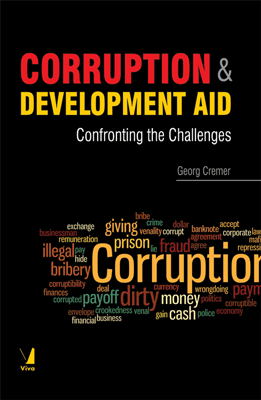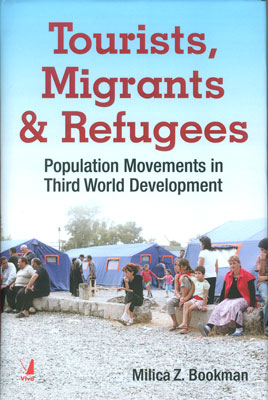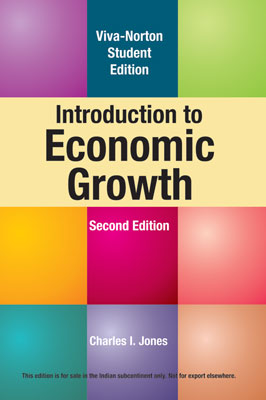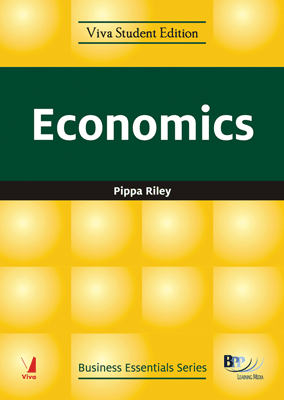Corruption & Development Aid
Corruption & Development Aid
Confronting the Challenges
₹715.50 ₹795.00 Save: ₹79.50 (10%)
Go to cartISBN: 9789386385598
Bind: Paperback
Year: 2017
Pages: 170
Size: 5.75 x 8.75 Inch
Publisher: Lynne Rienner Publishers, Inc.
Published in India by: Viva Books
Exclusive Distributors: Viva Books
Sales Territory: India, Nepal, Pakistan, Bangladesh, Sri Lanka
"One of the few studies that explores how development assistance itself contributes to corruption.... Recommended."
—Choice
"An honest and revealing look at the cancer of corruption in the developing world. Examining the interrelated aspects of development aid, Dr. Cremer aptly presents the rampant abuse and misuse of aid funds and proposes sensible ways to address the issue. His book should be required reading for all those involved in development work."
—Steve Berkman, author of The World Bank and the Gods of Lending
"Practical experience, administrative know-how, and last but not least, the author's analytical skills all come together in this clear and concise book. It belongs in the hands of every individual interested in development policy."
—Theodor Hanf, University of Freiburg
"An outstandingly well structured, clearly written, and practice-oriented overview of corruption in development work. Cremer shows how to handle the challenges."
—Carel Mohn, Transparency International
Description:
Although corruption has always been a quietly recognized aspect of development aid programs, the taboo against openly discussing it is only now being widely overcome. Georg Cremer systematically addresses the subject, exploring the nature and impact of corruption, the conditions under which it is most likely to take hold, and the strategies that can enable aid organizations, both NGOs and those in the state sector, to limit the risk.
Target Audience:
This book is written for every individual interested in development policy.
Contents:
Foreword, Peter Eigen
Preface
Chapter 1. Corruption in Development Aid: From Taboo to Political Action • A Problem That Should Not Exist • The Beginning of Political Change • The Plan of the Book
Chapter 2. What Is Corruption? • Bribery • Misappropriation • Nepotism
Chapter 3. How Useful Is Corruption? • A Catalyst for Competition? • Less Red Tape? • Incentives for Qualified Civil Servants? • Illicit Income as an Essential Source of Capital Accumulation? • Bribery as a Means of Protecting Minorities? • A Balanced Assessment of Corruption
Chapter 4. Corruption in Development Projects • How Limited Is Empirical Access? • Corruption in the Phase Prior to Project Approval • Corruption in the Project Implementation Phase • Case Studies
Chapter 5. What Does Corruption Cost? • The Additional Costs of Corruption • Who Is Being Hurt? • Looking Through the Eyes of Government Officials
Chapter 6. Corruption Control as a Global Responsibility • Corruption Cannot Be Explained in Predominantly Cultural Terms • Corruption as a Global Phenomenon • Corruption in International Economic Relations • One Cannot Not Intervene!
Chapter 7. Is Corruption Control a Lost Cause? • The Production of Receipts • The Manipulation of Bidding Procedures • The Limited Effect of Administrative Controls • Leaving the Job to the External Sponsor
Chapter 8. The Role of Nongovernmental Organizations • Risks Specific to Nongovernmental Organizations • The Advantage of Choice
Chapter 9. Barriers to Information in Development Work • What Foreign Aid Workers Actually Perceive • What Foreign Aid Workers Want to Tell Their Head Office • What the Head Office Wants to Know
Chapter 10. The Pressure to Spend ?Development Dollars? • Structural Forces Within Aid Organizations • The Effects of Disbursement Pressure • Excessive Demands on Local Partners • Overly Restrictive Guidelines and Rule Bending • The Demonization of Administrative Costs
Chapter 11. Corruption in Project Work: An Analysis of Weakness • Prerequisites for Project Evaluation • Conditions for Controlling Finances • Project Designs Susceptible to Abuse • Relations Between Donors and Implementing Partners ?
Chapter 12. Confronting the Challenges • Training Employees to Recognize and Respond to Corruption • Dealing with the Public in New Ways • Avoiding Crusades • Improving the Empirical Base • Effectiveness-Centered Control • Including Anticorruption Clauses • Improving Procurement Procedures • Creating Risks for Corrupt Contractors • Integrating Target Groups into Control Systems • Requiring Anticorruption Structures in NGO Project Sponsorship • Cutting Off Aid • The Importance of Sociopolitical Context • Reducing State Intrusion in Economic Processes • Limiting State Action: Reducing Loopholes for Misappropriation • Paying Higher Wages to Officials? • Flaming Reform Policy for the Public Sector • Setting Priorities • Improving Control Mechanisms in the Public Sector • Involving Civil Society
Bibliography
Index
About the Book
About the Author:
Georg Cremer is secretary general of Caritas Germany and associate professor of economics at the University of Freiburg. He has been extensively involved with aid programs in both Asia and eastern Europe.







